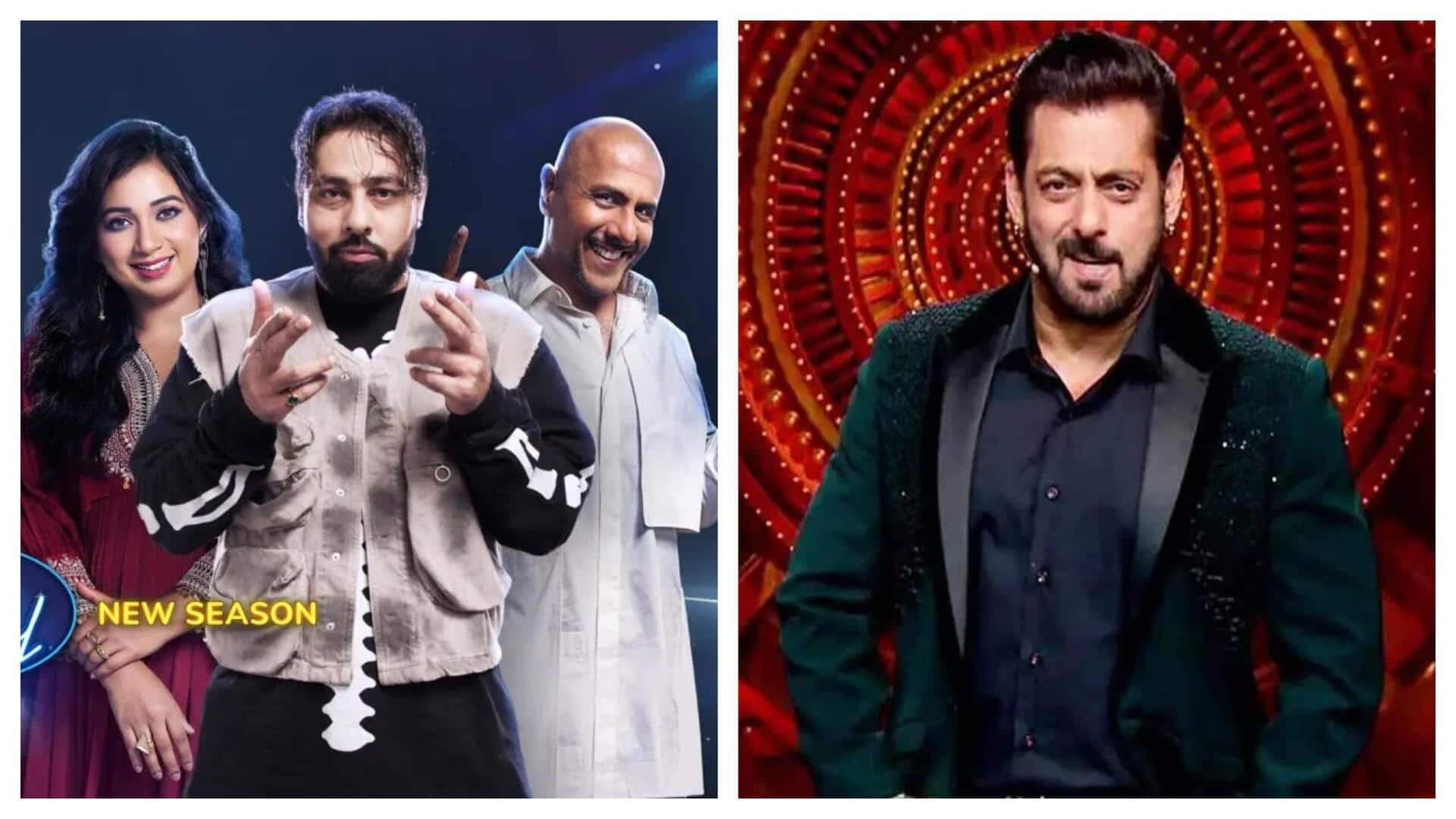
'Bigg Boss,' 'Indian Idol': How India successfully adapts global shows
What's the story
In the vibrant and dynamic world of Indian television, reality shows have made a mark by enthralling audiences with an enticing mix of international adaptations and homegrown formats.
From Bigg Boss and Indian Idol to Khatron Ke Khiladi, India's Got Talent, and local versions of Shark Tank and MasterChef, these successful adaptations have ruled the roost.
Industry leaders recently spoke to Variety about how makers creatively adapt globally popular shows and localize them for Indian audiences.
Expert insights
'Reality, game and talent formats have always been popular...'
Sameer Nair, MD of Applause Entertainment, who brought Who Wants to be a Millionaire? to India as Kaun Banega Crorepati (KBC) in 2000, said reality shows have always been popular in India.
"Reality, game and talent formats have always been popular in India, even in the '80s and '90s," he said.
"But with KBC in 2000, the celebrity-powered version of officially licensed unscripted television took root in India."
Amitabh Bachchan's longstanding association with the show has also aided it massively.
Local adaptation
'In each case, something uniquely Indian adds to the magic...'
Nair emphasized that the success of such international formats in India is usually a masterful blend of the original idea and local adaptation.
He said, "Obviously, it's the format itself, but in every case, the addition of the local Indian tadka [spicing] if you will has given the shows that special something that has endeared them to Indian audiences."
"In each case, something uniquely Indian adds to the magic of the original format."
Streaming revolution
Streaming platforms and reality shows: A new era
Nikhil Madhok, head of originals at Prime Video India, highlighted how streaming has changed the game for unscripted content.
He said, "Streaming transformed the space by exposing viewers to the wide possibilities that the nonfiction or unscripted format offered."
"At Prime Video, the customer is our North Star, and all our programming decisions are backwards to their tastes and preferences," Madhok added.
Emotional appeal
Emotional core and cultural nuances: Keys to success
Aradhana Bhola, MD of Fremantle India, opined, "Whether it is the awe we experience when someone exhibits their talent, the inner cheer that an underdog story elicits from us or the magic of seeing someone's dream come true that kindles hope in us too, the aspirational and inspirational aspects of reality shows ensure the genre's popularity."
India's Got Talent (adapted from Got Talent) and Indian Idol (adapted from Pop Idol) fit into this category.
Cultural adaptation
'Reality shows capture the nation's aspirations and anxieties...'
Meanwhile, Mrinalini Jain from Banijay Asia stressed the need to adapt international formats in a way that appeals to local sensibilities.
"At Banijay Asia, we prioritize creating local versions of global formats that reflect the cultural nuances and emotional landscapes of Indian audiences," she said.
Danish Khan from SonyLIV added, "Reality shows or nonscripted shows are extremely popular in India, primarily as they capture the nation's aspirations and anxieties in all their complexity."
Global impact
The potential of Indian formats on a global scale
As the industry continues to grow and experiment, many executives see the scope for Indian formats to gain eyeballs internationally.
Nair suggested, "Indian creators need to create universal ideas that are formattable, scalable and franchisable; that will take our ideas global."
Bhola from Fremantle India expressed optimism, stating, "The clock is already ticking on that one!"
Another similar show, The Traitors, based on the namesake Dutch show, will soon stream on Amazon Prime Video.